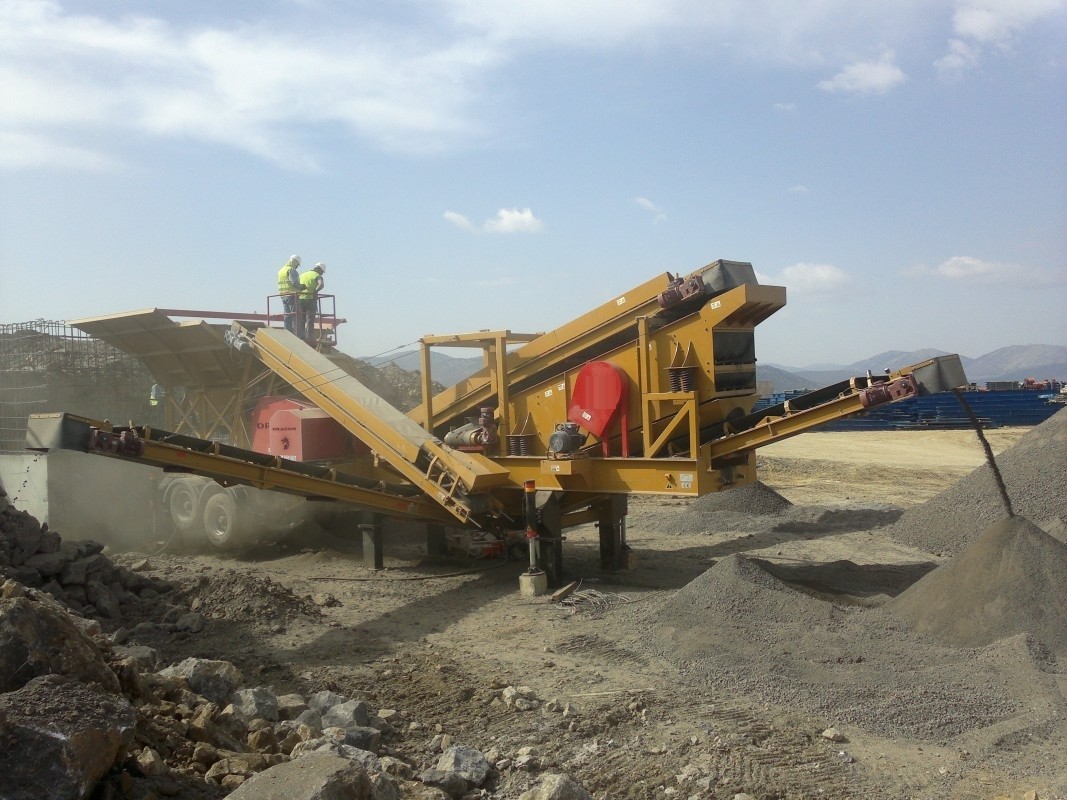When buying a crushing and screening plant for sale, there are several important factors to consider. This process requires a thorough evaluation of each step to ensure that the investment will be profitable in the long run. Below is a detailed explanation of what to look for:
1. Needs Analysis and Product Selection
The first step is to choose machines that are suitable for the intended purpose of the plant. Crushing and screening plants are commonly used for the production of aggregates in the construction industry. However, the industry in which the plant will be used (mining, recycling, etc.) will determine the appropriate choice of equipment.
-
Crushing Capacity: The capacity of the plant is crucial depending on your production goals. High-capacity plants are suitable for large construction projects, while smaller plants may be appropriate for low-volume work.
-
Screening Technology: Screening is essential for ensuring homogeneous and high-quality products. The capacity, efficiency, and durability of screening machines must be considered.
-
Raw Material Type: The type of raw materials processed in the plant also influences product selection. Crushing and screening plants can process stones, minerals, sand, etc. The hardness, size, and composition of the material will determine the type of equipment used.
2. Machine Quality and Technology
Machine quality is very important when purchasing a plant. High-quality machines have a longer lifespan, require fewer repairs, and incur lower maintenance costs. Additionally, technological advancements such as digital control systems, automation, and remote monitoring can improve the plant's efficiency.
3. Spare Parts and Service Support
The plant you purchase should have solid support for spare parts and services. This is critical for maintaining the plant's smooth operation. Spare parts should be easy and quick to obtain. Also, having regular maintenance and repair support from the manufacturer or seller is a significant advantage.
4. Energy Efficiency
Energy costs represent a significant portion of the operating expenses of crushing and screening plants. Energy-efficient machines can significantly reduce operating costs in the long run. Energy efficiency also contributes to making the plant more environmentally friendly.
5. Location and Infrastructure Needs
The location of the plant directly affects product selection and plant efficiency. A location with good access to transportation, easy raw material supply, and product shipping is ideal. Additionally, infrastructure needs like electricity, water, and waste management must be considered.
6. Price and Financial Analysis
The price of the plant is an important factor when making a purchase decision. However, in addition to the price, operating costs, maintenance expenses, and potential profit margins should also be carefully calculated. A low initial purchase price might be appealing, but high operating costs could negatively impact profitability in the long run.
7. Environmental Factors and Legal Regulations
Environmentally friendly machines and plants must comply with environmental regulations. Crushing and screening plants can generate harmful emissions, so plants with eco-friendly technologies should be prioritized. Furthermore, local legal regulations and permits should be carefully researched.
Conclusion
Purchasing a crushing and screening plant requires careful analysis and decision-making. By evaluating your needs, the technical specifications of the plant, energy efficiency, service support, and financial aspects, you can make the best decision.
 English
English
 Le français
Le français
 Türkçe
Türkçe

